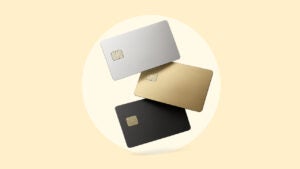Where can I get a business line of credit?

Key takeaways
- Traditional and online lenders offer small business lines of credit.
- Traditional lenders are best for established businesses with good-to-excellent credit.
- Online lenders are best for businesses that can’t get funding from a traditional lender.
A business line of credit can be a helpful funding tool for small businesses, allowing you to withdraw funds repeatedly as needs arise. You can get this type of loan through both traditional and online lenders. Traditional lenders can provide you with an in-person experience and offer low interest rates, provided that you have strong credit. Online lenders open up your options to multiple lenders and offer less stringent criteria to apply, even accepting businesses with bad credit.
If you feel like a business line of credit is the right funding option for your business, explore the features of several line of credit lenders to see which is the best lender for you.
Getting a business line of credit from a traditional lender
Traditional lenders, meaning banks and credit unions, often offer a business line of credit option to customers. If you’re interested in working with a traditional lender, it’s a good idea to research and talk with multiple lenders because you can find different options at each. Many offer multiple business lines of credit, including both secured and unsecured options.
There are larger traditional lending institutions — like Bank of America and Wells Fargo — and regional or local banks and credit unions.
While more businesses tend to apply at larger banks, they have a lower approval rate for small business loan applications than small banks. According to the 2024 Small Business Credit Survey, 39 percent of applicants applied at large banks, while only 29 percent applied at small banks. Of these applications, small banks approved 79 percent of applicants, while large banks only approved 77 percent.
Start-ups may also want to consider small banks over large banks when searching for a business line of credit. Small banks tend to lend more to start-ups than large banks, according to the 2024 FDIC Small Business Lending Survey. Small banks are also more likely to meet with the business and use soft information, such as industry experience, market condition knowledge and a solid business plan for lending decisions than large banks, which can be valuable for new start-ups or those without established credit.
Like other types of SBA 7(a) loans, SBA CAPLines are secured through a traditional lender and offer a line of credit of up to $5 million for working capital, contracts, builders or seasonal expenses. Note these lines come with fees, including a guarantee fee, but they don’t require a down payment.
Pros
- Can visit physical locations: Most banks and credit unions have at least one branch you can visit in person. This gives you a more personalized customer service experience and a central location for all of your business banking.
- Lower interest rates: Traditional lenders often have interest rates that start lower than alternative or online lenders.
Cons
- Lower approval rates: Approval rates are more favorable for online lenders. Additionally, their qualification requirements tend to be more strict
- Less convenient: Some traditional lenders have online options available for loan applications and management, but they don’t all have this. If online options aren’t available, you’ll have to visit during business hours.
Who it’s best for
Traditional lenders are best for established business owners with good-to-excellent credit who prefer an in-person experience. Business owners may need a personal FICO score of at least 670 or higher and annual revenue of $200,000 to $250,000 to be eligible. These criteria are strict compared to other lenders that offer business lines of credit.
Requirements for getting a business line of credit from a traditional lender
To obtain a business line of credit from a traditional lender you’ll need to meet various requirements and must also provide financial documentation for review. The exact criteria may vary slightly from lender to lender, but typically includes a review of the following:
- Business name and Employer Identification Number (EIN)
- Years in business
- Business credit score
- Annual revenue
- Tax returns
- Business plan
- Debt schedule
Many lenders will also ask small business owners to provide personal bank statements and personal tax returns, knowing that your business and personal finances are often intertwined.
Getting a business line of credit from an online lender
Traditional lenders aren’t the only lending option for securing a business line of credit. Online lenders like Fundible and OnDeck offer business lines of credit with less stringent requirements. They may accept minimum credit scores in the mid-500s to low 600s — and may offer shorter terms than traditional lenders. They also have higher approval rates. The 2023 Small Business Credit Survey found that online lenders approved 69 percent of small business loan applications.
Pros
- Convenient: Everything you need to do to apply for and manage your business loan can be done on your computer or phone.
- More options available: Without the restriction of location, you can find many different lenders online.
- Higher approval rates: As discussed above, approval rates are significantly higher for loans from alternative lenders. Many work with newer, smaller businesses with lower credit scores that traditional lenders would reject.
Cons
- Less-personal experience: With alternative lenders, you don’t usually have the option of visiting an in-person branch. Additionally, many aspects of the lending process are automated, so you’re not interacting with actual people much.
- Need to be electronically savvy: While online lenders work to make the experience convenient for customers, you’ll need to upload documents digitally and communicate online. If you have trouble with technology, this option can be more difficult.
- Higher interest rates: Online lenders offset the risks they take by charging higher interest rates and fees, like prepayment penalties.
Business lines of credit may have lower credit limits when coming from an online lender. Loan sizes typically range from $5,000 to $500,000, though some go higher. By comparison, traditional lenders can offer lines of credit in the millions of dollars.
Who it’s best for
Online lenders are best for tech-savvy businesses looking at every option and businesses that have been denied loans by traditional lenders (as online lenders have higher approval rates).
With online lenders, your business may need as little as six months or a year under its belt and $100,000 in annual revenue. Online lenders are also more accepting of bad or fair credit, such as a personal FICO score of 550 to 600 or above.
Requirements for getting a business line of credit from an online lender
Online lenders are known for offering a simpler, more streamlined application process, often with minimal paperwork. But they still have certain criteria that must be met along, with documentation requirements, including:
- Years in business
- Annual revenue
- Bank statements
- Personal credit score
- Identification documents
Where’s the best place to get a business line of credit?
Ultimately, the best place to get a business line of credit differs for each business. Think about what you need the funds for, how much money you need and your business’s qualifications to find a lender that gives you the highest probability of approval.
When to choose a traditional lender
- Traditional lenders may be ideal for you in these scenarios:
- You want in-person service
- You have strong credit and revenue
- You want to build a relationship with the bank
When to choose an online lender
You might choose an online lender if you can’t quite meet the qualifications for a traditional lender or you fit one of these situations:
- You’re a startup, have low revenue or have bad credit
- You were denied a business loan from a traditional lender
- You need fast funding, such as funding in 24 hours
There are always other financing options beyond a business line of credit, including:
Bottom line
A business line of credit is a convenient way to cover everyday expenses and working capital needs. Choosing a lender type gets you one step closer to selecting the perfect lender. Once you decide on your lender type, you can look into specific options from different lenders to find the best option for your business.
Frequently asked questions
Why we ask for feedback Your feedback helps us improve our content and services. It takes less than a minute to complete.
Your responses are anonymous and will only be used for improving our website.






